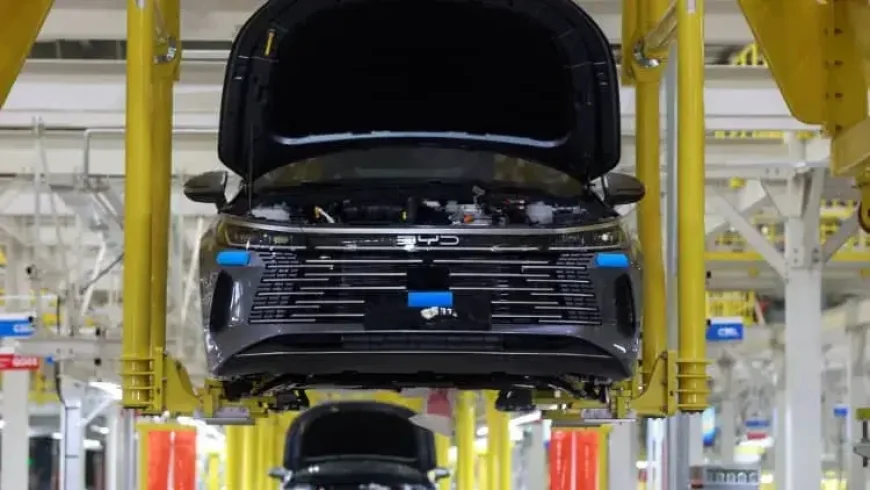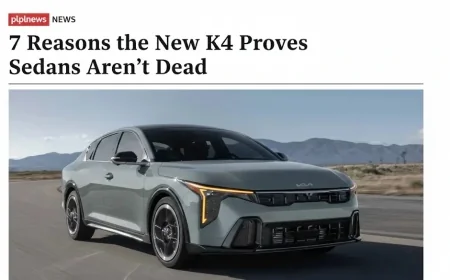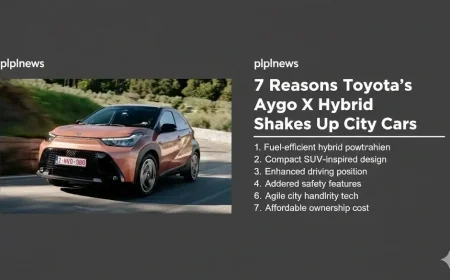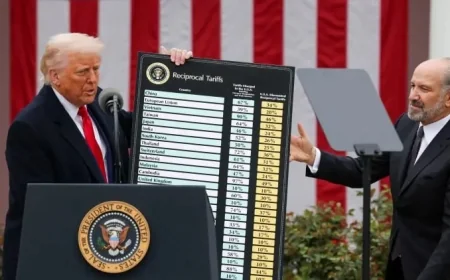Chinese electric vehicle manufacturers are winning in Brazil
• Brazil has become the latest epicenter of China's electric vehicle boom. • The country is South America's largest car market and has long been a major hub for American automakers, who now face stiff competition from new Chinese players.

• By 2025, Chinese models will account for over 80% of total electric vehicle sales in Brazil.
On the streets of Rio de Janeiro, it's not hard to see the latest sign of China's growing global auto ambitions. Electric vehicles from Chinese brands like BYD and Great Wall Motor are arriving rapidly.
"There are too many Chinese cars on the roads," said electric vehicle owner Sergio Ramalho.
Brazil has become the latest epicenter of China's electric vehicle boom. According to Brazilian customs data, the country imported approximately 138,000 electric and hybrid vehicles from China in 2024, an increase of approximately 100,000 compared to the previous year.
Chinese automakers, which have exited the US market, are focusing their attention on emerging economies.
"Chinese electric vehicle manufacturers are facing enormous pressure within China. They are moving abroad in large numbers," said Ilaria Mazzocco, deputy director of the Center for Strategic and International Studies.
Brazil is South America's largest car market, and as in other countries, Chinese companies are competing directly with established brands in this market. According to the Brazilian Electric Vehicle Association, by 2025, Chinese models will account for more than 80% of total electric vehicle sales.
Affordable prices have been a major attraction. One of the country's best-selling electric cars, BYD's Dolphin Mini, has a starting price of around 119,900 reais, or $22,000, about $7,000 less than General Motors' cheapest comparable model in Brazil.
"We've seen a huge influx of Chinese vehicles here. The demand for charging is very high," said Gustavo Tannuerre, CEO of charging network startup EZVolt.
After Brazil lifted a 35% import duty on electric vehicles in 2015, BYD expanded rapidly locally. The company began producing electric buses in 2015 and now operates one of Latin America's largest electric vehicle plants in the northeastern state of Bahia. The 4.6 million square meter complex, built on the site of a shuttered Ford plant, is expected to produce 300,000 cars annually.
"Brazil is the largest automotive market in Latin America. If you want to sell in Brazil, there's a strong incentive to produce in Brazil," Mazzocco said.
Other Chinese automakers are following suit. Great Wall Motors began producing vehicles this year after acquiring a former Mercedes-Benz factory near São Paulo.
...This rapid influx has raised concerns among labor groups.
Wellington Damasceno, executive director of the ABC Metalworkers Union, said, "This could lead to a massive influx of vehicles from China, threatening our jobs and production in Brazil."
The Brazilian government has since decided to reinstate import tariffs. Tariffs on foreign electric vehicles are scheduled to be reinstated in 2024 and are projected to reach 35% by 2026.
BYD has also faced scrutiny over reports of poor conditions for some construction workers at its new Bahia plant. The company has stated that it "zero tolerates violations of human rights and labor laws" and has severed ties with the contractor involved.
Despite this controversy, Chinese automakers continue to invest heavily.
"The strategy really seems to be this: be the first company to sell electric vehicles in new markets. Create markets," Mazzocco said. "It's a long-term approach – and it's transforming markets on the ground in many emerging economies."
What's Your Reaction?
 Like
0
Like
0
 Dislike
0
Dislike
0
 Love
0
Love
0
 Funny
0
Funny
0
 Angry
0
Angry
0
 Sad
0
Sad
0
 Wow
0
Wow
0











































